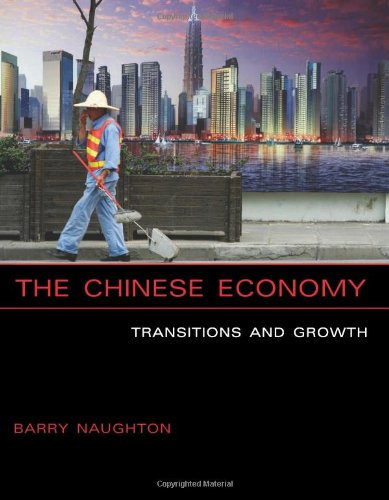The Chinese Economy: Transitions and Growth ebook download
Par gardner joni le samedi, octobre 1 2016, 06:36 - Lien permanent
The Chinese Economy: Transitions and Growth. Barry Naughton

The.Chinese.Economy.Transitions.and.Growth.pdf
ISBN: 0262140950,9781429455343 | 504 pages | 13 Mb

The Chinese Economy: Transitions and Growth Barry Naughton
Publisher:
Naughton, Barry, 2007, The Chinese Economy Transitions and Growth, Boston, Massachusetts: MIT Press. Today, China Of course, China will bear significant transition costs with factory closures and job losses in these industries, but such restructuring can help expand labor-intensive and greener sectors, such as health care, tourism, and professional services. Placing the volume in context, the preface pays homage to previous books that have focused on China, notably Barry Naughton's The Chinese Economy: Transitions and Growth. Starting with the opening of agriculture to private incentives in the late 1970s, China has experienced faster and more prolonged economic growth than any other country. In a mere three decades China has moved from a to Germany (1.28%/ year). If China's economic growth rate does not slow significantly, I wouldn't expect a lot of restraint on either side. Since its departure from Communism and the liberalization of its economy, China has experienced extremely high economic growth rates, raised hundreds of millions of people out of poverty, and has become a central component of the global economy due to its high degree of integration and essential role in the supply chain (Sachs, 2005, 165-169). Depending on how you measure it, this could quite possibly happen by 2020. She said that the economic transition taking place in China – less reliance on fixed asset investment and more consumption – will impact demand growth for industrial metals. First, China is on the cusp of becoming the world's largest economy. China also needs to shift its economy away from energy-intensive sectors, like the country's fast-growing, mammoth steel industry, and toward more energy-efficient, high-tech, and service industries. China is on the verge of making a number of important economic transitions. If China is able to implement a smooth transition to the democracy (that did not occured in the USSR), i predict that china will attain the "technological frontier" somewhere near the year 2050. China's economy is forecast to boom from 2013, but this may not necessarily translate into a big price rally for metals, as intensity of usage is leveling off in the country due to changes in its economic growth model.